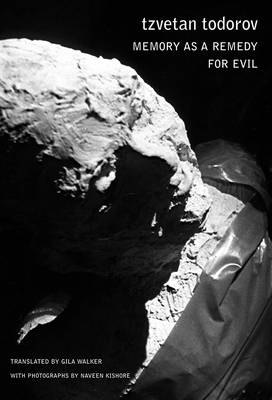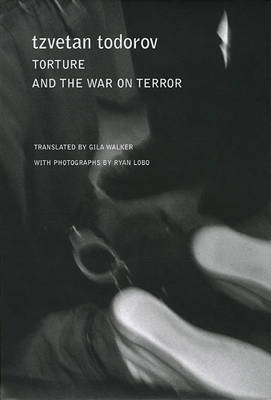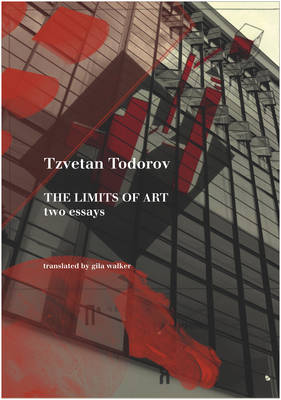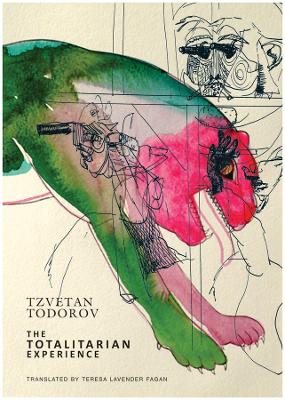The French List
4 total works
Can humanity be divided into good and evil? And if so, is it possible for the good to vanquish the evil, eradicating it from the face of the earth by declaring war on evildoers and bringing them to justice? Can we overcome evil by the power of memory? In "Memory as a Remedy for Evil", Tzvetan Todorov answers these questions in the negative, arguing that despite all our efforts to the contrary, we cannot be delivered from evil. In this work on evil, memory, and justice, Todorov examines the uses of memory and the spate of memorial laws in France in order to show how memory has failed as a remedy against evil and how efforts to come to grips with past evil through trials and punitive justice have failed as well. Todorov locates the fatal flaw of all these approaches in our erroneous relationship with evil as alterity, the distinction that we draw between ourselves and others that allows us to imagine ourselves in the appealing role of hero and victim and confine others to the role of villain and criminal.
Similarly, in his analysis of the South African Truth and Reconciliation Commission and Cambodia's Khmer Rouge Tribunal, Todorov argues in favor of restorative justice, which 'seeks not to punish but to restore relations that should never have been interrupted' between former perpetrators and former victims. Memory as a Remedy for Evil is a powerful and timely work that asks that we recognize the good and evil within each of us and reminds us that only by coming to terms with evil and trying to understand it can we hope to tame it.
Similarly, in his analysis of the South African Truth and Reconciliation Commission and Cambodia's Khmer Rouge Tribunal, Todorov argues in favor of restorative justice, which 'seeks not to punish but to restore relations that should never have been interrupted' between former perpetrators and former victims. Memory as a Remedy for Evil is a powerful and timely work that asks that we recognize the good and evil within each of us and reminds us that only by coming to terms with evil and trying to understand it can we hope to tame it.
Though the 2008 election of Barack Obama and his subsequent signing of the executive order to close the prison at Guantanamo Bay signaled a considerable shift away from the policies of the Bush era, the lessons to be learned from the war on terror will remain relevant and necessary for many years to come. In the aftermath of 9/11, the U.S. government approved interrogation tactics for enemy combatant detainees that could be defined as torture, which was outlawed in Europe in the eighteenth century as well as prohibited by the Geneva Conventions and the United Nations Convention Against Torture. In conjunction with these policies, the Bush administration vocally defended torture as a necessary tool in its war on terror. Here Tzvetan Todorov argues that the use of the terms 'war' and 'terror' dehumanize the enemy and permit treatment that would otherwise be impermissible. He examines the implications and corrupting impact of the attempt to impose 'good' through violence and the attempt to spread democratic values by unethical means. Todorov asks: Can violence overcome violence? Does the need to protect one's own country justify violating human rights?
Invalidating one by one the political and ethical arguments in favor of torture, Todorov likens institutional torture to a cancer that is eroding our society and undermining the very fundamental democratic ideas of justice and right. "Torture and the War on Terror" is a significant work in ethics, human rights, and political and social history by one of the world's leading intellectuals, and its arguments will be influential in shaping our policies to come.
Invalidating one by one the political and ethical arguments in favor of torture, Todorov likens institutional torture to a cancer that is eroding our society and undermining the very fundamental democratic ideas of justice and right. "Torture and the War on Terror" is a significant work in ethics, human rights, and political and social history by one of the world's leading intellectuals, and its arguments will be influential in shaping our policies to come.
Tzvetan Todorov, one of Europe's leading intellectuals, explores the complex relations between art, politics, and ethics in the two essays that make up "The Limits of Art". In "Artists and Dictators," Todorov traces the intimate relationship between avant-garde art and radical politics in pre-revolutionary Russia, pre-fascist Italy, and pre-Nazi Germany. Todorov sets forth the radical idea that the project of totalitarian dictators and avant-garde artists actually 'emerged from the same womb': both artists and dictators set out to make it new - be it art or society. Further troubling the role of art in the world at large, in "Art and Ethics" Todorov re-examines the age-old question of what can be expected from art and whether it should be emancipated from ethics. Must art be morally instructive, or should it be self-sufficient and concept-free? The answer is not an either/or to Todorov, who believes, like Baudelaire, that art has both cognitive and ethical aspects to it - even if it is presented as art for art's sake. Throughout the essays in "The Limits of Art", Todorov insists on the essential need for artists to recognize, understand, and even love the world outside.
The fall of the Berlin Wall marked the beginning of the collapse of the Soviet Union, as well as many other communist totalitarian regimes around the world. But it would be naive to assume that this historic, symbolic event and its aftermath have completely rid the world of totalitarianism. Instead, we should ask, what is the totalitarian experience and how does it survive today? This is the imposing question raised by acclaimed philosopher and writer Tzvetan Todorov in this compact, highly personal essay. Here, he recounts his own experiences with totalitarianism in his native Bulgaria and discusses the books he has written in the last twenty years that were devoted to examining regimes, such as "Voices from the Gulag", his influential analysis of Stalinist concentration camps. Through this retrospective investigation, Todorov offers a historical look at communism. He brings together and distills his extensive oeuvre to reveal the essence of totalitarian ideology, the characteristics of daily life under communism, and the irony of democratic messianism.
Bringing his thoughts and insights up to the present, Todorov explores how economic ultraliberalism may be considered just another form of totalitarianism. And his conclusion leads us to ask ourselves another challenging question: Are liberal democratic societies actually totalitarian experiences in disguise?
Bringing his thoughts and insights up to the present, Todorov explores how economic ultraliberalism may be considered just another form of totalitarianism. And his conclusion leads us to ask ourselves another challenging question: Are liberal democratic societies actually totalitarian experiences in disguise?



